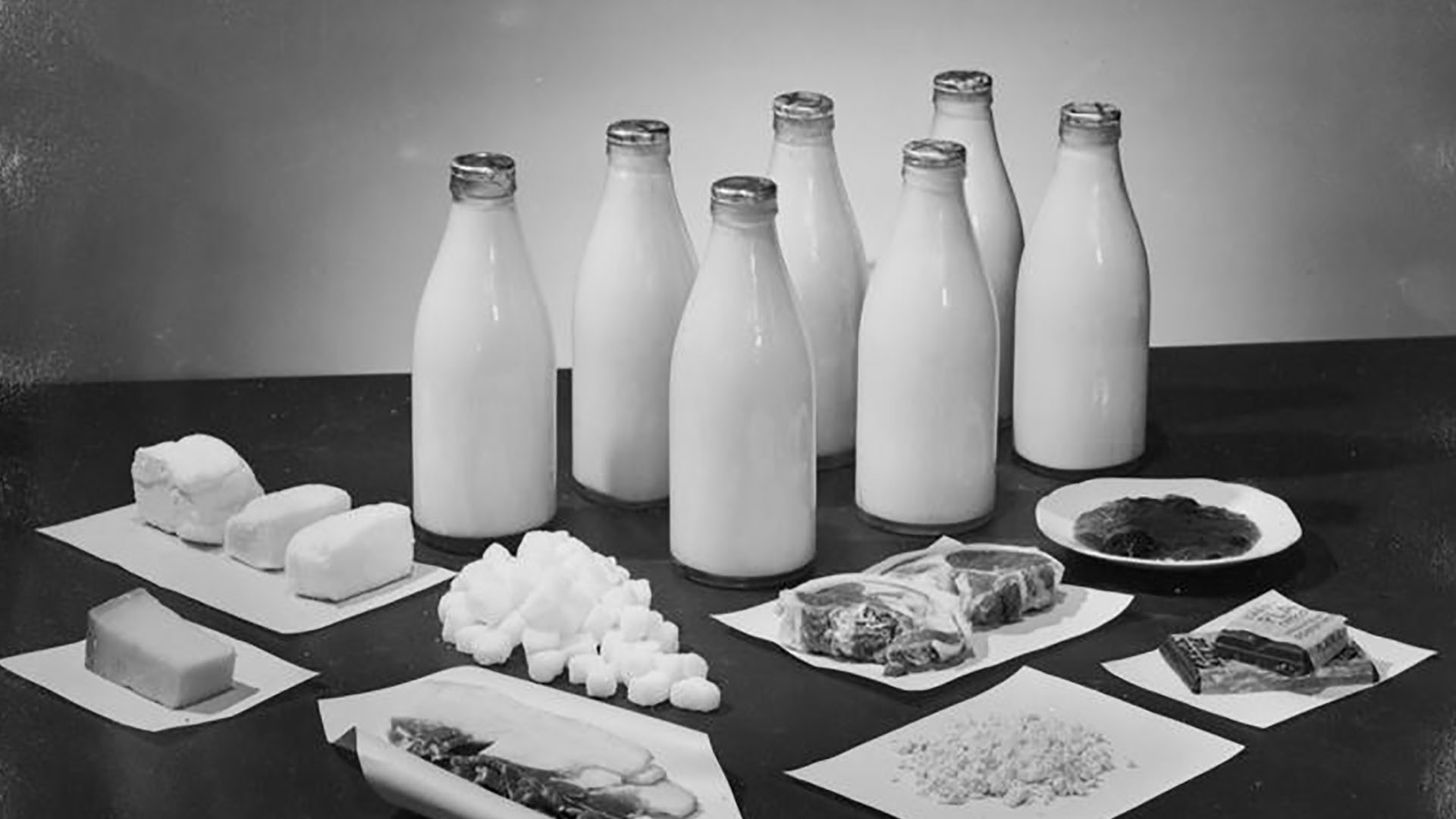Recent events surrounding the COVID-19 or Coronavirus outbreak have seen people rush to shops and stores to stockpile. This type of panic-buying and hoarding is not a new phenomenon. On 29th August 1939, the outbreak of World War Two was fast approaching and the Belfast Telegraph reported on the dangers of hoarding.
The article below comes directly from the newspaper but still offers sound advice when times get hard.
Don't attempt to hoard
Have you walked or driven or cycled through the country and met the farmer’s wife carrying her basket of potatoes or turnips just dug out of the pit? Take your first lesson in food storage from her. You can store your root vegetables in boxes covered with soil.
If you have not already prepared your store cupboard for this dreaded “emergency”, which seems to loom ahead of us, do so now deliberately and without feverish excitement. Don’t attempt to hoard – you won’t be allowed to do so in any case – but provide yourself, from your usual grocery and other establishments, with more than your usual stock of supplies.
In choosing those supplies, remember you cannot do better than begin with oatmeal – if war comes you’ll never regret it. Flour is another very useful stock in a country where, ’til a few years ago, there were still people who never used any but home-made bread. Airtight tins in a dry larder will keep meal and flour in good condition indefinitely.
I find there are people who think that storage for war means tinned food only. By no means. Raisins and currants, for example, are excellent food, any kind of dried fruit is a good investment, and dried vegetables also.
Rice, macaroni, and cereals of all kinds are so well packed nowadays that their storage is a simple matter. There are also the many types of oat rye and other similar crisp breads, which keep indefinitely in their tins, and which are highly nutritious.
Tinned meat and soup are too obvious to need to mention, but do not forget meat essences also. You may not care for dried or tinned milk, but in case.
Then there is the question of butter and fat of all kinds. Don’t throw one drop of fat down the sink. After a roast, pour if off the pan into a jam jar, pour in a little boiling water and keep covered in a dry cupboard.
You will always have fat for cooking if you do this, and there is great nourishment in dripping. Lard also will keep almost indefinitely. Butter will not, but you ought to know the good old Irish custom of packing butter.
It was well-salted, packed in wooden tubs, boxes, or earthenware crocks, covered with a layer of salt – and kept the whole winter. I am not suggesting you should do the latter, because it is too like hoarding, but a few pounds of butter in reserve is quite another matter. Margarine keeps for a couple of weeks or so, a commodity for storage.
There has been “a run” in Ulster shops on light-resisting curtains. The housewife who has to deal with the straight window is in a much better position than she who has hitherto delighted in her attractive bow windows.
For the bow window, only blinds will keep out the light. For the straight window, dark green holland, black linen, or black Italian cloth are all being sold. I’m afraid there will be little sale on cottage or other lightweight curtains for the immediate present.
The Belfast Telegraph published this article by “Rhona” on 29th August 1939, as the British Government prepared to begin rationing of certain items.


